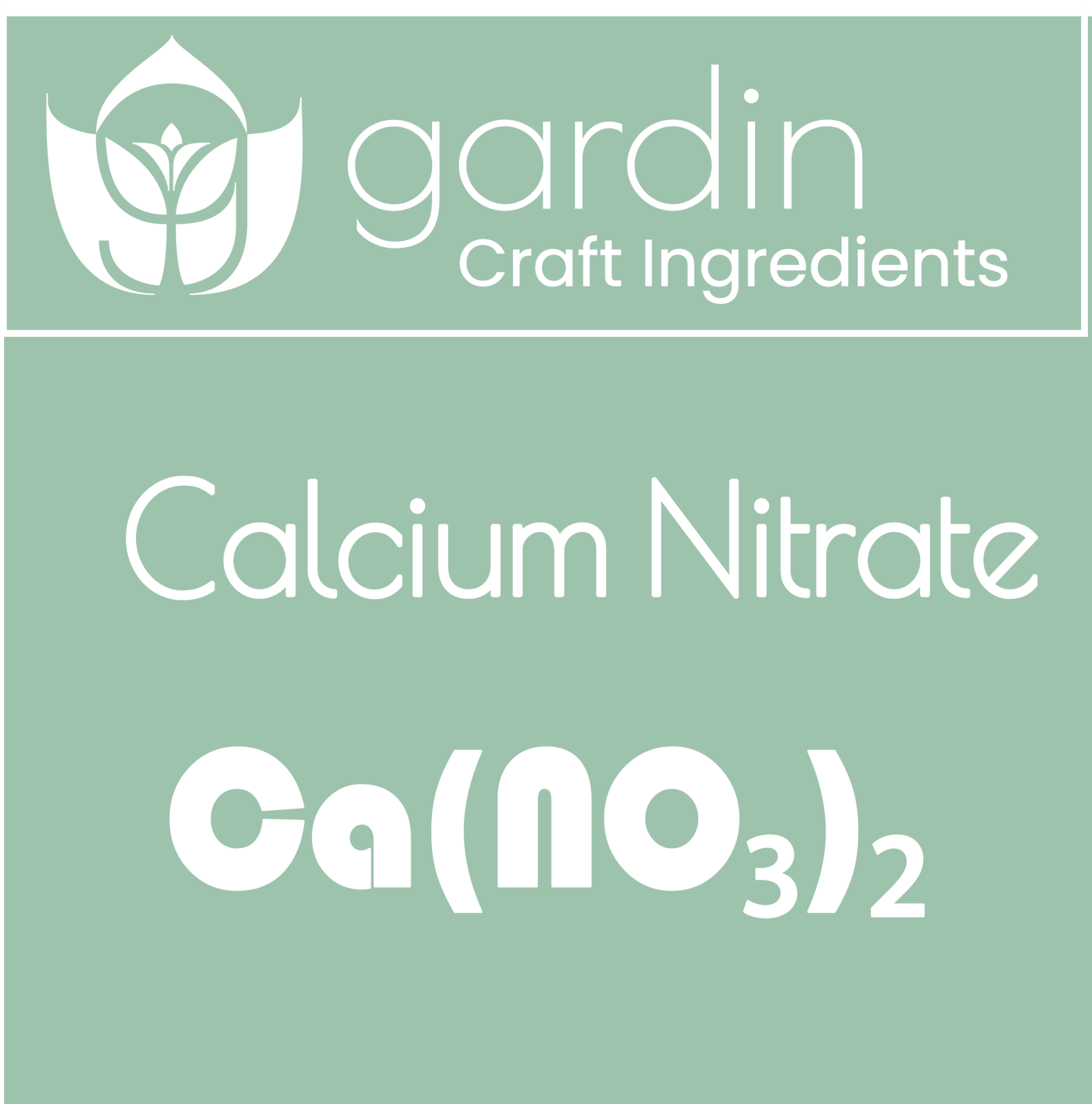Calcium nitrate is a water-soluble fertilizer that contains two essential nutrients for plant growth: calcium and nitrogen. These nutrients play important roles in various aspects of plant development, and when applied correctly, calcium nitrate can help plants grow by providing the following benefits:
-
Nitrogen source: Calcium nitrate is a source of readily available nitrogen in the form of nitrate (NO3-). Nitrogen is a fundamental component of amino acids, proteins, chlorophyll, and nucleic acids. These compounds are essential for plant growth and development. Nitrogen is particularly important for processes like photosynthesis, leaf and stem development, and overall plant vigor.
-
Calcium source: Calcium is another essential nutrient for plants, serving as a secondary macronutrient. It plays a critical role in cell wall formation and stability, which is crucial for plant structure and strength. Adequate calcium levels help prevent disorders like blossom end rot in tomatoes and peppers. Calcium also contributes to root development, nutrient uptake, and overall plant health.
-
Improved nutrient uptake: Calcium ions can help improve the uptake of other essential nutrients by plants. They promote the formation of stable, neutral complexes with various nutrients, making them more available to plant roots. This can enhance overall nutrient efficiency.
-
pH adjustment: Calcium nitrate has a near neutral pH, so its use does not significantly affect the acidity or alkalinity of the soil. However, calcium can help to balance out the pH in some situations, preventing soil from becoming too acidic.
-
Water-soluble: Calcium nitrate is highly water-soluble, making it suitable for fertigation (the application of fertilizers through irrigation systems) and foliar application. This allows for efficient nutrient delivery to plants.

